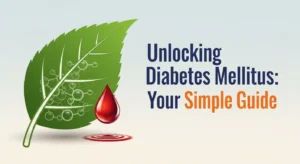Our bodies are intricate systems, constantly working to maintain a delicate balance. One of the most crucial of these is the level of glucose, or sugar, in our blood. However, when this balance is disrupted and blood sugar levels soar, a condition known as hyperglycemia, it can lead to a cascade of signs and symptoms of high blood sugar, some subtle and others more alarming. Recognizing these elevated sugar symptoms is the first and most critical step towards managing your health and preventing potentially serious complications.

This comprehensive guide will delve deep into the signs and symptoms of high blood sugar levels, exploring everything from the earliest whispers of an imbalance to the more pronounced symptoms of high glucose levels in blood. Our goal is to empower you with the knowledge to identify any sign of high blood sugar and take control of your well-being.
Understanding Signs And Symptoms Of High Blood Sugar
Before we explore the signs and symptoms of high blood sugar, it's essential to understand what constitutes high blood sugar. For someone without diabetes, a fasting blood glucose level (after at least eight hours without eating) is typically under 100 milligrams per deciliter (mg/dL). A reading between 100 and 125 mg/dL is generally considered prediabetes, signaling an increased risk of developing type 2 diabetes. A fasting blood sugar of 126 mg/dL or higher on two separate occasions usually results in a type 2 diabetes diagnosis.

For individuals with diabetes, the target blood sugar range can vary depending on age, overall health, and other factors. However, a common target is to keep blood sugar levels before meals between 80 and 130 mg/dL and less than 180 mg/dL two hours after the start of a meal. Hyperglycemia in a person with diabetes is often considered a blood glucose level greater than 180 mg/dL one to two hours after eating. It's crucial to work with a healthcare provider to determine your personal target range.
The Early Whispers: Recognizing the Initial Signs of High Sugar
The initial signs and symptoms of high blood sugar can be subtle and easily mistaken for the effects of a busy or stressful lifestyle. However, noticing these early indicators is crucial for timely intervention.
Increased Thirst (Polydipsia) and Frequent Urination (Polyuria)
One of the most common and earliest signs of elevated blood sugar is a noticeable increase in thirst and the need to urinate more often than usual. This happens because as excess glucose builds up in your bloodstream, your kidneys are forced to work overtime to filter and absorb it. When your kidneys can no longer keep up, the excess sugar is excreted into your urine, dragging along fluids from your tissues. This leads to more frequent urination and, consequently, dehydration, which triggers an intense feeling of thirst. You might find yourself waking up multiple times during the night to urinate (nocturia), a classic sign of this process.
Unexplained Fatigue and Weakness
Feeling perpetually tired, even after a full night's sleep, is one of the key signs and symptoms of high blood sugar. When blood sugar is elevated, glucose isn’t effectively entering your cells to be used for energy. This can be due to a lack of insulin or insulin resistance, where your cells don’t respond properly to insulin. As a result, your cells are deprived of fuel, leading to persistent fatigue and weakness. Dehydration from frequent urination can also intensify this exhaustion.

Blurred Vision
Blurry vision is one of the common signs and symptoms of high blood sugar. Elevated glucose levels can draw fluid out of the lenses of your eyes, affecting their ability to focus properly. This issue is often temporary and resolves once blood sugar levels return to normal. However, if left unmanaged, high blood sugar can damage the blood vessels in the retina, leading to diabetic retinopathy and potential permanent vision loss.
Persistent Headaches
Frequent headaches are among the common signs and symptoms of high blood sugar. This may be linked to dehydration and the brain not receiving a steady glucose supply to function properly. Fluctuating blood sugar levels can further contribute to these headaches.
When the Signs Become More Pronounced: Later Symptoms of High Glucose Levels in Blood
If the early signs and symptoms of high blood sugar are ignored, they can progress and become more severe, signaling a more serious underlying problem.
Unexplained Weight Loss
Losing weight without trying might seem like a positive development, but it can be a serious symptom of high glucose levels in the blood. When your cells can't get the glucose they need for energy, your body starts to break down muscle and fat for fuel instead. This leads to a loss of both muscle mass and fat, resulting in unintentional weight loss.
Increased Hunger (Polyphagia)
Paradoxically, even with high levels of sugar in the blood, you might experience intense hunger, a condition known as polyphagia. Because your cells aren't getting the glucose they need, your body sends out hunger signals, urging you to eat more in an attempt to get the necessary fuel. This can create a frustrating cycle of eating more but still feeling hungry and lacking energy.
Slow-Healing Sores and Frequent Infections
One of the serious signs and symptoms of high blood sugar is a reduced ability to heal and fight infections. Poor circulation and nerve damage can make it harder for blood to reach and repair cuts and sores, leading to slow-healing wounds and a higher risk of infections such as skin infections, urinary tract infections (UTIs), and vaginal yeast infections in women.
Tingling and Numbness (Neuropathy)
One of the serious signs and symptoms of high blood sugar over time is nerve damage, known as diabetic neuropathy. It often begins in the hands and feet, causing tingling, numbness, burning, or pain. This loss of sensation can make it harder to notice injuries, increasing the risk of infections, particularly in the feet.
When High Blood Sugar Becomes an Emergency
In some cases, very high blood sugar levels can lead to life-threatening complications that require immediate medical attention.
Diabetic Ketoacidosis (DKA)
Diabetic ketoacidosis is a serious complication that primarily affects people with type 1 diabetes but can also occur in type 2 diabetes. It happens when the body, unable to use glucose for energy due to a severe lack of insulin, begins to break down fat at a rapid rate. This process produces acidic compounds called ketones, which can build up in the blood to dangerous levels, making it acidic.
Symptoms of DKA include:
- Fruity-smelling breath
- Nausea and vomiting
- Abdominal pain
- Shortness of breath or deep, rapid breathing
- Confusion and disorientation
- Loss of consciousness
DKA is a medical emergency that can lead to a diabetic coma and even death if not treated promptly.
Hyperosmolar Hyperglycemic State (HHS)
Hyperosmolar hyperglycemic state is another life-threatening emergency that is more common in people with type 2 diabetes. In HHS, blood sugar levels become extremely high, often over 600 mg/dL, leading to severe dehydration and confusion. Unlike DKA, ketones are not usually present or are present in very low levels in HHS.
Symptoms of HHS include:
- Extreme thirst
- Very dry mouth
- Flushed, hot, dry skin
- Drowsiness or confusion
- Vision loss
- Hallucinations
- Coma
HHS also requires immediate medical treatment.
What Causes High Blood Sugar?
Several factors can contribute to elevated blood sugar levels. For people with diabetes, the primary causes are related to insulin.
- For individuals with type 1 diabetes: The body's immune system attacks and destroys the insulin-producing cells in the pancreas, leading to an absolute deficiency of insulin.
- For individuals with type 2 diabetes: The body either doesn't produce enough insulin or the cells become resistant to the insulin that is produced (insulin resistance).
- Gestational diabetes: This occurs during pregnancy when hormonal changes can lead to insulin resistance.
Other factors that can cause high blood sugar in people with and without diabetes include:
- Diet: Consuming too many carbohydrates or sugary foods can cause a spike in blood sugar.
- Lack of physical activity: Exercise helps your body use glucose for energy and improves insulin sensitivity.
- Stress: Physical or emotional stress can trigger the release of hormones that raise blood sugar levels.
- Illness or infection: Your body releases stress hormones when you're sick, which can lead to elevated blood sugar.
- Certain medications: Some medications, such as steroids, can raise blood sugar levels.
- The dawn phenomenon: A natural surge of hormones in the early morning hours can cause a temporary increase in blood sugar.
For more detailed information on diabetes, you can visit the American Diabetes Association.
The Long-Term Consequences of Unchecked High Blood Sugar
Chronically elevated blood sugar can have devastating effects on your body over time, leading to a host of serious health problems. These long-term complications develop gradually, but they can be disabling or even life-threatening.
- Cardiovascular disease: High blood sugar damages blood vessels, increasing the risk of heart attack and stroke.
- Kidney disease (nephropathy): The delicate filtering system in your kidneys can be damaged, potentially leading to kidney failure.
- Nerve damage (neuropathy): As mentioned earlier, this can cause pain, numbness, and problems with digestion, erectile dysfunction, and other bodily functions.
- Eye damage (retinopathy): Damage to the blood vessels in the retina can lead to blindness.
- Foot problems: Nerve damage and poor blood flow can lead to serious foot infections and, in severe cases, amputation.
- Skin conditions: High blood sugar can make you more susceptible to bacterial and fungal skin infections.
- Dental problems: You may be more prone to gum infections.
- Hearing impairment: Hearing problems are more common in people with diabetes.
- Alzheimer's disease: Some research suggests a link between type 2 diabetes and an increased risk of dementia.
For a deeper understanding of the connection between blood sugar and heart health, the National Heart, Lung, and Blood Institute is an excellent resource.
When to See a Doctor
It's important to consult a healthcare professional if you experience any persistent signs or symptoms of high blood sugar, especially if you have a family history of diabetes or other risk factors. Early diagnosis and treatment can help prevent serious complications.
Seek immediate medical attention if you experience the following:
- Symptoms of DKA or HHS, such as fruity-smelling breath, severe abdominal pain, extreme confusion, or loss of consciousness.
- Ongoing vomiting or diarrhea, as this can lead to severe dehydration.
- Blood sugar levels that are consistently above your target range, despite following your treatment plan.
You can learn more about managing diabetes and finding a healthcare provider at the National Institute of Diabetes and Digestive and Kidney Diseases.

Taking Control: The First Step Towards a Healthier You
Recognizing the signs and symptoms of high blood sugar is not about causing alarm, but about empowering you with knowledge. Your body often sends signals when something is amiss, and learning to interpret these signs of high sugar levels is a crucial aspect of proactive health management. Whether you've noticed a subtle increase in thirst or more pronounced symptoms of elevated blood sugar, acknowledging these changes is the first step on a journey towards better health. By understanding the causes and potential consequences of high glucose levels symptoms, you can make informed decisions, seek timely medical advice, and take the necessary steps to manage your blood sugar and protect your long-term well-being.








